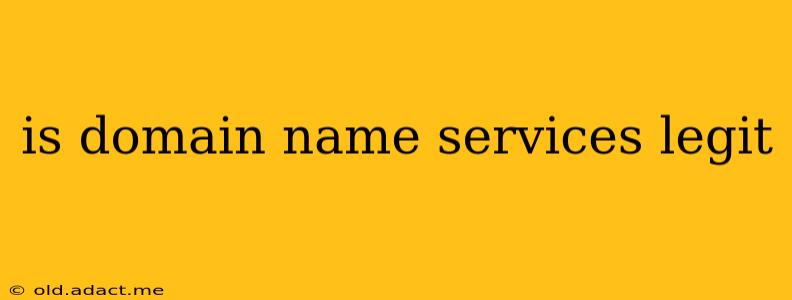Is Domain Name Service (DNS) Legit? Understanding the Foundation of the Internet
The question "Is Domain Name Service (DNS) legit?" is a bit like asking if the roads are legit. DNS isn't a company or a product you buy; it's a fundamental part of the internet's infrastructure, responsible for translating human-readable domain names (like google.com) into machine-readable IP addresses (like 172.217.160.142). So, the answer is a resounding yes, DNS is absolutely legitimate and essential for the internet to function.
However, the legitimacy of DNS gets nuanced when considering the providers of DNS services. While the concept itself is legitimate, some companies offering DNS services might employ practices that raise concerns about privacy or security. Let's explore this further.
What is DNS and How Does it Work?
DNS, or Domain Name System, acts as a phonebook for the internet. When you type a website address into your browser, your computer doesn't understand the name; it needs a numerical IP address to connect. DNS servers are responsible for this translation. They work in a hierarchical system, with root servers at the top and recursive resolvers (like those provided by your ISP or DNS providers like Google Public DNS or Cloudflare) handling requests from your computer.
This process is incredibly fast and happens seamlessly in the background, but understanding its basics helps clarify why DNS is essential and inherently "legit" in its core function.
Are There Legitimate Concerns About DNS Providers?
While DNS itself is legitimate, the services provided by various DNS providers are where legitimate concerns can arise. These concerns often revolve around:
-
Data Privacy: Some DNS providers log your browsing history, potentially compromising your privacy. Others offer privacy-focused services that don't log your activity. It's crucial to choose a provider with a transparent privacy policy that aligns with your comfort level.
-
Security: DNS servers are vulnerable to attacks, like DNS spoofing or cache poisoning. Choosing a reputable provider with robust security measures is essential to protect against these threats. Many providers utilize techniques like DNSSEC (DNS Security Extensions) to enhance security.
-
Censorship: In some countries, governments may censor or block access to certain websites by manipulating DNS records. Choosing a provider outside your country's jurisdiction might be necessary if you're concerned about such censorship.
What about DNS hijacking? Is that legit?
DNS hijacking is absolutely not legitimate. This is a malicious activity where attackers redirect your DNS requests to their own servers, potentially leading to phishing attacks or malware infections. It's crucial to protect yourself against this by using secure and reputable DNS providers and keeping your software updated.
How to Choose a Legitimate DNS Provider
Choosing a legitimate DNS provider requires research. Look for providers who:
- Have a clear and transparent privacy policy. Understand what data they collect and how they use it.
- Employ robust security measures. Look for features like DNSSEC and DDoS protection.
- Have a good reputation. Read reviews and check online forums for feedback from other users.
- Offer good performance. Fast DNS resolution times are crucial for a smooth browsing experience.
In conclusion, DNS itself is a legitimate and fundamental aspect of the internet. However, selecting a trustworthy DNS provider is vital for protecting your privacy and security. Do your research, read reviews, and choose a provider that aligns with your needs and values.
